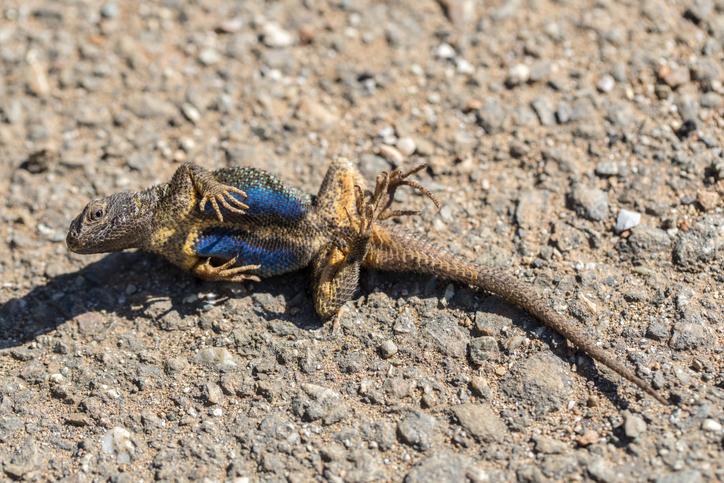Frozen iguanas to start dropping from trees due to plummeting temperatures in Florida, forecasters warn
But don't approach stiff and lifeless creatures, experts say - they could thaw and attack

Your support helps us to tell the story
From reproductive rights to climate change to Big Tech, The Independent is on the ground when the story is developing. Whether it's investigating the financials of Elon Musk's pro-Trump PAC or producing our latest documentary, 'The A Word', which shines a light on the American women fighting for reproductive rights, we know how important it is to parse out the facts from the messaging.
At such a critical moment in US history, we need reporters on the ground. Your donation allows us to keep sending journalists to speak to both sides of the story.
The Independent is trusted by Americans across the entire political spectrum. And unlike many other quality news outlets, we choose not to lock Americans out of our reporting and analysis with paywalls. We believe quality journalism should be available to everyone, paid for by those who can afford it.
Your support makes all the difference.As weather forecasts go, it was a little unusual to say the least: a cold front with possible showers of ... iguanas.
This was the warning given in the US state of Florida on Tuesday when meteorologists issued a statement telling residents to beware falling reptiles.
The alert, from the National Weather Service, came as the southern state was hit by temperatures dropping to an uncommonly cold -1C.
That’s low enough to freeze the blood of iguanas, which, in turn, can lead to the animals losing their grip on the tree branches where they live and result in them plummeting to earth.
"This isn't something we usually forecast,” the service in Miami tweeted, “but don't be surprised if you see iguanas falling from the trees tonight as lows drop into the 30s and 40s. Brrrr.”
The warning was arguably much-needed: given that adult males an reach 5ft in length and weigh in at 20 pounds, they could be potentially dangerous to anyone standing underneath when they fall.
And experts also told residents it was best not to approach the stiff and chilled creatures if spotted: they may unexpectedly thaw and attack.
“Like any wild animal, it will try to defend itself,” Kristen Sommers, from the Florida Fish and Wildlife Conservation Commission, told the Washington Post last year.
Join our commenting forum
Join thought-provoking conversations, follow other Independent readers and see their replies
Comments